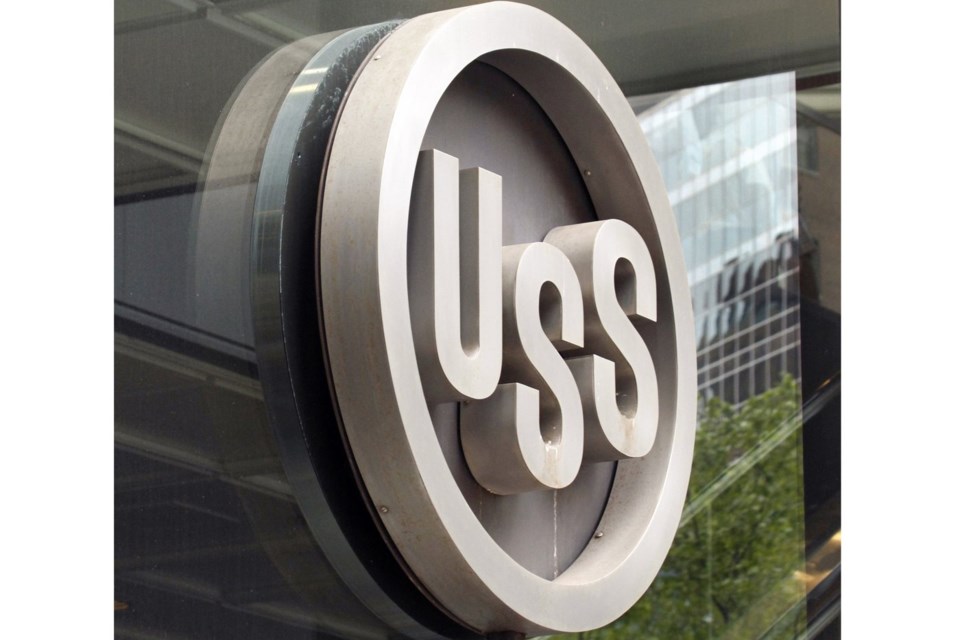WASHINGTON (AP) ŌĆö By blocking of U.S. Steel, President Joe Biden said he was protecting good jobs in the American heartland. He may be putting them at risk instead.
In making its nearly $15 billion bid for the storied Pittsburgh-based steelmaker, Nippon Steel had promised to invest $2.7 billion in U.S. SteelŌĆÖs aging blast furnace operations in Gary, Indiana, and PennsylvaniaŌĆÖs Mon Valley. It also vowed not to reduce production capacity in the United States over the next decade without first getting U.S. government approval.
ŌĆ£They were going to invest in the Valley,ŌĆÖŌĆÖ said Jason Zugai, an operating technician and vice president of the United Steelworkers union local at a U.S. Steel plant in the Mon Valley. ŌĆ£They committed to 10 years of no layoffs. We wonŌĆÖt have those commitments from anybody.ŌĆÖŌĆÖ
Zugai and some other Mon Valley steelworkers supported the Nippon deal in defiance of the unionŌĆÖs national leadership, which pressured the Biden administration to kill it.
Losing the Nippon-U.S. Steel deal ŌĆ£will be a disaster for Pennsylvania,ŌĆÖŌĆÖ said Gordon Johnson, who follows U.S. Steel stock on Wall Street as founder of GLJ Research. ŌĆ£I really donŌĆÖt understand. This is not in the interest of the workers. ItŌĆÖs not in the interest of the shareholders of U.S. Steel.ŌĆÖŌĆÖ
On Friday, Biden said he was stopping the Nippon takeover ŌĆö after federal regulators deadlocked on whether to approve it ŌĆö because ŌĆ£a strong domestically owned and operated steel industry represents an essential national security priority. ... Without domestic steel production and domestic steel workers, our nation is less strong and less secure.ŌĆÖŌĆÖ
U.S. Steel stock dropped 6.5% on the news Friday.
The decision, announced less than three weeks before the president leaves the White House, reflects a growing .
President-elect Donald Trump had already come out against the Nippon takeover. ŌĆ£As President,ŌĆØ he wrote last month on his Truth Social platform, ŌĆ£I will block this deal from happening. Buyer Beware!!!ŌĆØ
In a joint statement, Nippon and U.S. Steel called BidenŌĆÖs decision ŌĆ£a clear violation of due process and the lawŌĆÖŌĆÖ and suggested they would sue to salvage their deal: ŌĆ£We are left with no choice but to take all appropriate action to protect our legal rights.ŌĆÖŌĆÖ
U.S. Steel was in a merger that involved American business titans J.P. Morgan and Andrew Carnegie and instantly created the largest company in the world. As the U.S. grew to world dominance in the 20th century, U.S. Steel grew with it. In 1943, at the height of the World War II manufacturing boom, U.S. Steel employed 340,000 people.
But foreign competition ŌĆö from Japan in the 1970s and ŌĆś80s and later from China ŌĆö gradually eroded U.S. SteelŌĆÖs position and forced it to close plants and lay off workers. The company now employs fewer than 22,000 in an industry dominated by the Chinese.
The U.S. government has sought over the years to protect U.S. Steel and other American steelmakers by imposing taxes on imported steel. During his first term, Trump slapped 25% tariffs on foreign steel, and Biden kept them or converted them into import quotas. Either way, the trade barriers kept the price of American steel artificially high, giving U.S. Steel and others a financial boost.
U.S. Steel is profitable and is sitting on $1.8 billion in cash, though that is down from $2.9 billion at the end of 2023.
United Steelworkers President David McCall declared Friday that U.S. Steel had the financial resources to go it alone. ŌĆ£It can easily remain a strong and resilient company,ŌĆÖŌĆÖ he told reporters.
But U.S. Steel has said it needs the cash from Nippon Steel to keep investing in blast furnaces like the ones in Pennsylvania and Indiana.
ŌĆ£Without the Nippon Steel transaction, U. S. Steel will largely pivot away from its blast furnace facilities, putting thousands of good-paying union jobs at risk, negatively impacting numerous communities across the locations where its facilities exist,ŌĆÖŌĆÖ U.S. Steel warned in September. The company also threatened to move its headquarters out of Pittsburgh.
On its own, U.S. Steel seems poised to focus on newer electric arc furnaces, such as its Big River plant in Arkansas, which can make high-quality steel products more efficiently and at lower prices compared to blast furnaces, said Josh Spoores, the Pennsylvania-based head of steel Americas analysis for commodity researcher CRU.
ŌĆ£I donŌĆÖt know if they donŌĆÖt have the will, but they seem to have seen that itŌĆÖs a much better investment, a much better rate of return if they look to invest in an electric arc furnace rather than a blast furnace,ŌĆØ Spoores said. He noted that no steelmaker has built a blast furnace in North America for decades.
One possibility is that another company will step in and make a bid for U.S. Steel.
In 2023, arch-rival Cleveland-Cliffs offered to buy U.S. Steel for $7 billion. U.S. Steel turned the offer down and ended up accepting the nearly $15 billion all-cash offer from Nippon Steel, which is the deal that Biden nixed Friday. Perhaps, analysts say, Cleveland-Cliffs will try again.
In a statement, Pennsylvania Gov. Josh Shapiro warned U.S. Steel management against ŌĆ£threatening the jobs and livelihoods of the Pennsylvanians who work at the Mon Valley Works and at U.S. Steel HQ and their families.ŌĆÖŌĆÖ
Shapiro also said companies that put in bids to buy U.S. Steel in the future must make the same commitments to ŌĆ£capital investment and protecting and growing Pennsylvania jobs that Nippon Steel placed on the table.ŌĆÖŌĆÖ
___
Marc Levy reported from Harrisburg, Pennsylvania.
Paul Wiseman And Marc Levy, The Associated Press




